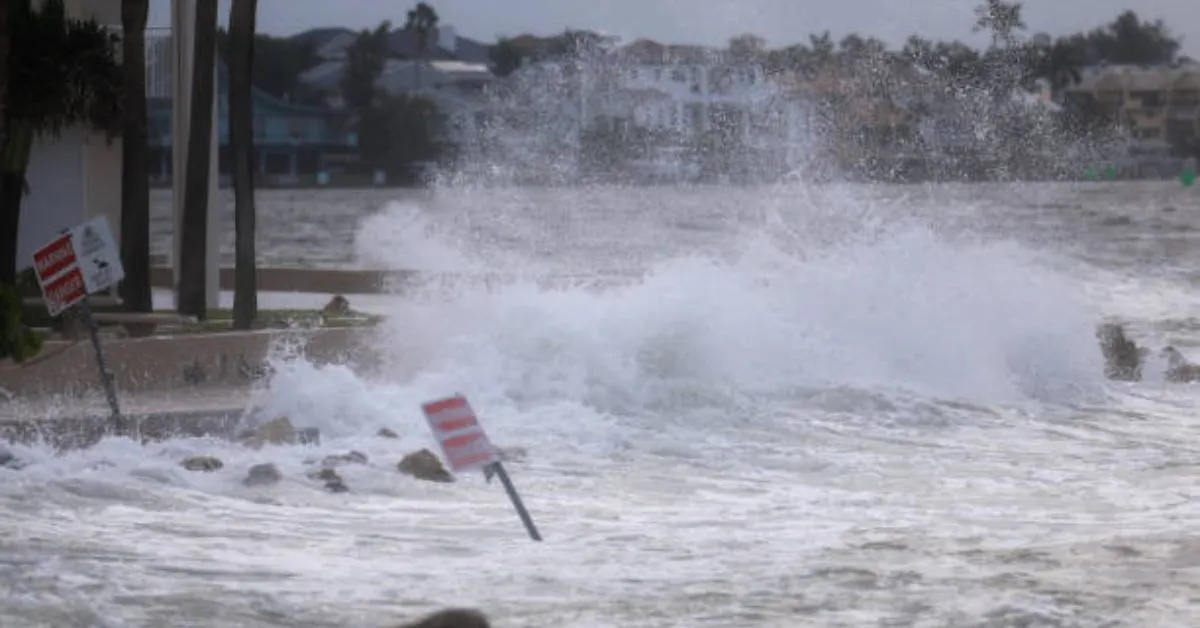
Hurricane Helene has left at least 26 people dead and caused major flooding across the southeastern United States on Friday, September 27, leaving millions of customers without power.
Roads, homes and businesses were underwater after Helene made landfall near Tallahassee, the capital of the state of Florida, during the night and moved northward, although it weakened to become a tropical storm.
The National Hurricane Center (NHC) reported “historic and catastrophic flooding” and warned of sudden rising waters in Atlanta, Georgia’s largest city, as well as in South Carolina and North Carolina.
Up to 30 centimeters of rain predicted in the Appalachian Mountains and isolated places even received more.
In Perry, a town near the point where Hurricane Helene hit the coast as a powerful Category 4 hurricane, homes were left without power and the gas station was leveled.
What the victims say
“I’m from Florida, so I’m kind of used to it, but at one point I was really scared. It was like my house was going to blow up,” Larry Bailey, 32, told AFP, who spent the night sheltering in his small wooden residence with his two nephews and his sister.
Georgia Governor Brian Kemp reported eleven fatalities in his state, including a first responder, and warned that the city of Valdosta had identified 115 heavily damaged structures with several people trapped inside.
Authorities in Pinellas County, Florida, confirmed five deaths related to the storm.
Another death was also confirmed in North Carolina, when a tree fell on a house, the fire department said.
With Typhoon Yagi hitting Asia, Storm Boris drenching Europe and extreme flooding in the Sahel, September has so far been a very wet month globally.
Scientists link some extreme weather events directly to global warming caused by humans, but it is still too early to draw clear conclusions about the current month.
New normal?
“We have to start asking ourselves: Is this the new normal? Is this going to happen every year?” said Curtis Drafton, 48, a search and rescue volunteer in Steinhatchee, Florida.
“There is a lot of talk about a once-in-a-lifetime storm, but last year we had another similar one”he told AFP.
Some Atlanta residents used buckets to pour water out of ground-floor windows.
Tampa and Tallahassee airports closed and more than 3.4 million homes and businesses were without power in Florida, Georgia and the Carolinas on Friday, according to the tracking site PowerOutage.us.
In the impact zone, residents had been warned of a never-before-seen storm surge.
Tampa Bay resident Matt Heller told CNN that his home was under 1.2 meters of water half an hour after the storm hit, while he took shelter in a kayak in his flooded living room.
“This is definitely the biggest flooding we’ve ever had,” he said.
President Joe Biden and state authorities had urged people to heed official evacuation warnings before Hurricane Helene hit, although some chose to stay home to wait out the storm.
DeSantis mobilized the National Guard and thousands of people for possible search and rescue operations and restoration of power.
Hurricane Helene previously hit the Yucatan Peninsula in Mexico, where several tourist resorts are located.
Source: https://www.noticiascaracol.com/mundo/se-elevan-a-26-las-victimas-fatales-por-el-paso-del-huracan-helene-en-estados-unidos-cb20


